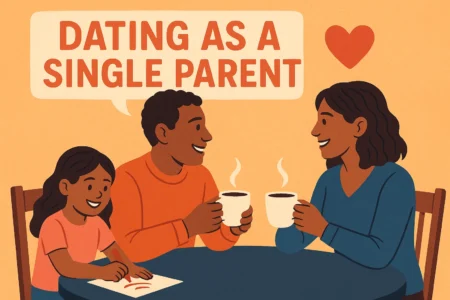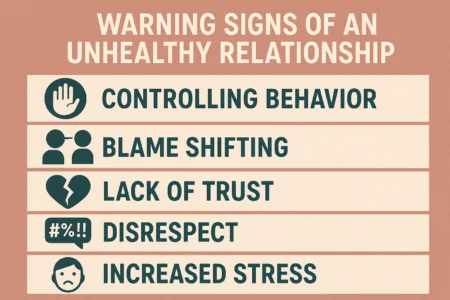Alright, let’s talk about something really tricky. Defensiveness. Ugh. Trying to talk to someone you love when they just throw up a wall? It feels like banging your head against, well, a wall. I’ve been there, and just talking to friends, it feels like so many of us have. So, I wanted to share some things I’ve figured out – mostly the hard way – that sometimes seem to help take the heat down a notch. Definitely no magic fixes here, just stuff that might make navigating those rough seas a little easier.
You know the drill, right? You need to talk about something important – maybe it’s about chores, or plans, or how something they did made you feel. You take a deep breath, try to start the conversation calmly, and BAM! Instant wall. You know the drill… suddenly they’re making excuses, or turning it back on you (‘Oh yeah? What about when you did that thing?!’), or maybe they just clam up completely. And just like that, whatever you actually needed to talk about is gone, replaced by this awful tangle of accusations and hurt.
It is exhausting. And honestly, it can make you feel incredibly lonely and misunderstood in your own relationship. Sometimes it just makes you want to give up trying to talk at all.
While you absolutely cannot make someone less defensive (that’s their work to do, if they choose), I have picked up a few things along the way – mostly through trial and error, and commiserating with friends – about how I can approach these conversations differently. Maybe, just maybe, shifting my communication can sometimes help things land a little softer. So, here are 5 thoughts on that.
First Off, Why the Defensiveness? (It’s Usually Not About You)
Before diving into tips, it sometimes helps (a tiny bit, maybe on a good day) to remember that defensiveness usually isn’t really about you or what you said. Often, it’s a shield. It might be covering up insecurity, fear of criticism, shame from past experiences, or just a learned habit of protecting themselves.
Does knowing this magically make it okay when they lash out or shut down? Absolutely not. Does it excuse hurtful behavior? Nope. But sometimes, just reminding myself, “Okay, this reaction is probably coming from their own ‘stuff,’ not because I’m inherently wrong/bad/nagging,” can give me just enough internal distance not to get immediately sucked into the drama vortex. It’s a small shift, but it can help keep my own emotions from instantly skyrocketing.
Tip #1: Soft Start-Up is Your Best Friend
Okay, practical thought number one. How you begin the conversation can make a world of difference. Think “soft start-up.” This basically means starting the conversation gently, focusing on your feelings and needs using “I” statements, rather than launching in with blame or accusations (“You” statements).
It’s the difference between:
- Harsh Start-Up: “You never help with the dishes! I’m sick of doing everything myself.” (Cue instant defensiveness: “That’s not true! I did them yesterday! You always exaggerate!”)
- Soft Start-Up: “‘Hey, listen… when the dishes stack up like that, I start feeling super stressed, like it’s all landing on my shoulders…’ Something like that, you know? Starting with how you feel about a specific thing… ‘Could we talk about how we can maybe share that task more evenly?'”
See the difference? The first one attacks character (“You never…”). The second one states your feeling (“I feel overwhelmed”) linked to a specific, neutral observation (“when the dishes stack up”) and opens the door for collaboration (“Could we talk about…?”). It doesn’t guarantee they won’t still get defensive, because defensiveness isn’t always logical. But it dramatically lowers the chances compared to starting with an attack. It took me ages to get the hang of this, and I still mess it up when I’m upset, but when I remember to do it, it generally goes better.
Tip #2: Timing is (Almost) Everything
Ever tried to have a serious conversation when your partner just walked in exhausted from work? Or when they’re rushing out the door? Or when you’re both already stressed about something else? Yeah, me too. It usually doesn’t end well.
Choosing a relatively calm moment when you both have some time and aren’t completely frazzled can significantly improve your odds, which might mean actually setting aside a time to talk. Yeah, I know, sounds about as romantic as a tax audit, but sometimes asking, ‘Hey, got something on my mind I wanna chat about – is now okay, or maybe later tonight?’ can make a huge difference. It shows respect for their headspace and avoids that ‘ambush’ feeling that can trigger immediate defensiveness. If now isn’t good, try to actually pin down a later time – don’t let it just hang indefinitely.
Tip #3: Focus on the Issue, Not the Person (Easier Said Than Done!)
This is related to the soft start-up but applies throughout the conversation. And then, keeping it about the thing, not the person. Oh god, this is the hardest part, right? Especially when you’re feeling attacked. But trying to steer it back, gently if you can manage… like, instead of ‘You’re just so thoughtless!’, maybe something like ‘When the plans changed suddenly like that, I felt kind of left out… Can we figure out a better way to communicate about schedule changes?’
It’s so hard to do this when you’re feeling hurt or attacked yourself. And honestly, the constant feeling unheard in relationship because conversations always spiral away from the actual point is incredibly frustrating. Sometimes you just have to repeat the core issue like a broken record (calmly, if possible!). Even just repeating, ‘I get that you see it differently, but can we just focus on figuring out X for a minute?’ Sometimes it works, sometimes it doesn’t, but you gotta try, right?
Tip #4: Know Your Goal (and Maybe Lower Your Expectations)
Before you even start the conversation, ask yourself: What do I really want out of this?
- Do you need them to understand your feelings?
- Do you need an apology?
- Do you need a concrete change in behavior?
- Do you just need to express yourself so you don’t explode?
Be honest with yourself. And then, be realistic. With a highly defensive partner, getting full understanding, a heartfelt apology, and a promise to change all in one conversation might be asking for the moon. Maybe the win for this conversation is just clearly stating your feelings without things escalating. Maybe just getting your point across without a major blow-up is the win for today. Or maybe you’re just planting a little seed that might grow later.
It doesn’t mean you’re okay with bad behavior forever, but it can save you so much heartache in the moment if you adjust what you expect from this one conversation. I swear, sometimes I literally tell myself beforehand, ‘Okay, mission: just say how you feel, don’t raise your voice. That’s it.’ And just taking that pressure off helps me.

Tip #5: Recognize When to Pause or Walk Away
This one is crucial for your own sanity. You cannot force a productive conversation with someone who is resolutely defensive. Listen, if it’s just getting heated – voices are rising, you’re going in circles, or you feel like you’re about to lose it – hitting pause is probably the smartest thing you can do. And no, it doesn’t mean you have to dramatically flounce out (though, trust me, the urge is real sometimes!). Just saying, ‘You know? I think I need a break right now, I’m feeling overwhelmed,’ works.
Or “This isn’t productive anymore. Let’s stop for now and maybe revisit this when we’re both calmer.” Or even “I can’t continue this conversation if I’m being yelled at/blamed/etc. Let’s pause.”
Maybe you agree to talk later, maybe not. The point is giving yourself permission to step away when it stops being talking together and starts being… something else. It’s not quitting; it’s protecting your own peace.
A Quick Reality Check
Let’s be real. Look, these ideas are just about handling your end of things. They might help bring the temperature down, help you get your point across a bit clearer… but they’re not gonna magically fix deep-seated defensiveness. Defensiveness is a deeply ingrained pattern for some people, and navigating it is incredibly challenging.
And seriously, this is important: if the defensiveness feels more like constant put-downs, or contempt (like they think you’re beneath them), or they shut you out completely all the time (stonewalling), or it ever feels scary or controlling? That’s way beyond ‘difficult communication.’ These tips aren’t for that stuff. Your safety, your feeling okay in your own home, that comes first, period. Don’t hesitate to get real support if things feel like they’re in that territory – for yourself, maybe for both of you if it feels safe.
Conclusion for Deal with a Defensive Partner 5 Communication Tips for Women
So yeah. Trying to connect with a defensive partner? It feels like running a marathon uphill, backwards, in shoes that pinch. It just sucks sometimes. You can’t force them to change, but maybe tweaking how you approach it – starting softer, picking your moments, knowing when to pause, all that stuff – can make it feel a little less impossible. It’s about finding ways you can feel a bit more grounded, even when they’re throwing up walls. If this is your reality right now, just know you’re not the only one dealing with it. Sending you good vibes.
Frequently Asked Questions
When should I consider pausing or walking away during a confrontation?
It’s important to pause or walk away if the conversation becomes heated, unproductive, or emotionally overwhelming to protect your own well-being. Taking a break allows both parties to calm down and return to the discussion more constructively later.
How can focusing on the issue rather than the person help in conversations?
Focusing on the specific issue instead of attacking the person’s character helps keep the conversation productive and less confrontational. Framing concerns around behaviors or specific situations encourages cooperation and reduces the emotional defensiveness.
Why is timing important when addressing sensitive topics?
Timing is crucial because having serious conversations when both partners are calm and unhurried increases the chances of a positive outcome. Choosing moments when stress levels are low demonstrates respect and helps prevent the escalation of defensiveness.
How does a ‘soft start-up’ improve communication with a defensive partner?
A ‘soft start-up’ involves beginning conversations gently by focusing on your feelings and needs using ‘I’ statements instead of blame. This approach lowers the likelihood of triggering defensiveness and creates a more collaborative atmosphere, making the discussion more productive.
What causes defensiveness in relationships, and why isn’t it always about me?
Defensiveness often isn’t about you directly; it usually serves as a shield covering underlying insecurities, fears of criticism, shame, or learned habits of protection. Recognizing that their reactions stem from their own issues can help you maintain perspective and reduce emotional escalation.





